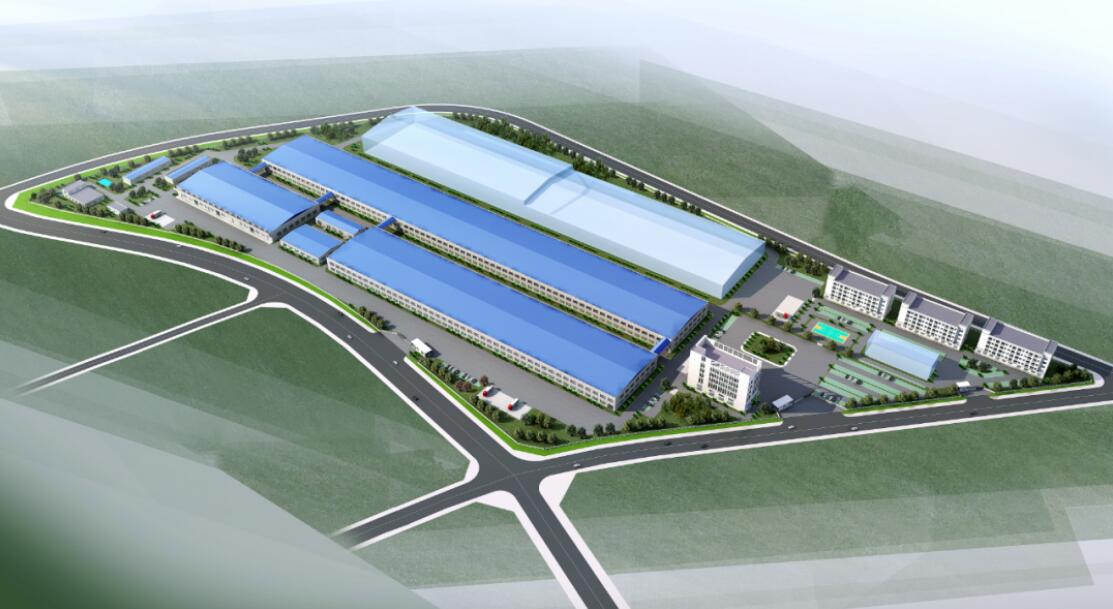A lesser-known company, Jiangxi Judian, began construction on August 8 on a solid-state lithium battery project with an annual capacity of up to 10 GWh.

(Rendering of Jiangxi Judian's solid-state battery facility. Image credit: Shenzhen Fuxin)
While the landscape of the traditional lithium battery industry is largely set, younger companies are betting on new solid-state battery technologies.
A lesser-known company, Jiangxi Judian New Energy Technology Co Ltd, started work on August 8 on a 10 GWh annual capacity solid-state lithium battery project in Ganzhou, Jiangxi.
Jiangxi Judian's controlling shareholder, Shenzhen Fuxin Industrial Technology Co Ltd, revealed the development in an August 8 announcement, saying the project will have a total investment of RMB 10 billion ($1.3 billion) and will produce solid-state battery cells, pack systems, and energy storage systems.
The project will be divided into two phases, with a total investment of RMB 1.68 billion in the first phase, which will have an annual capacity of 2 GWh of solid-state battery cells and 2 GWh of pack systems.
The total land area of the project is about 600 mu (0.4 square kilometers), of which about 320 mu will be used for the first phase of the project, with a building area of 72,000 square meters, according to the announcement.
The announcement did not mention anything more, including details of the solid-state battery.

Shenzhen Fuxin, founded in 2019, is a supplier of energy storage systems and indirectly holds Jiangxi Judian.
Currently, new energy vehicles (NEVs) mainly use liquid lithium batteries, but energy density is approaching its limit, and solid-state batteries are seen as a new technology capable of achieving higher energy density.
When Nio (NYSE: NIO) launched its flagship sedan, the Nio ET7, at the Nio Day 2020 event on January 9, 2021, it unveiled a 150-kWh semi-solid-state battery that it said could give the vehicle a range of more than 1,000 kilometers.
After that, solid-state batteries began to receive widespread attention as a new technology.
Solid-state electrolytes are structurally more stable, preventing short-circuiting of the battery, and are the best battery solution for balancing safety and energy density, market research firm TrendForce said in a report last month.
As automakers accelerate their investment and research and development in solid-state batteries, all-solid-state batteries with high-activity materials are expected to begin mass production around 2030 to 2035, TrendForce said.
By then, the energy density of lithium batteries could reach 500 Wh/kg, providing electric vehicles with a range that would be 2~3 times that of liquid lithium batteries, matching the range of fuel vehicles, the report said.
($1 = RMB 7.2100)



